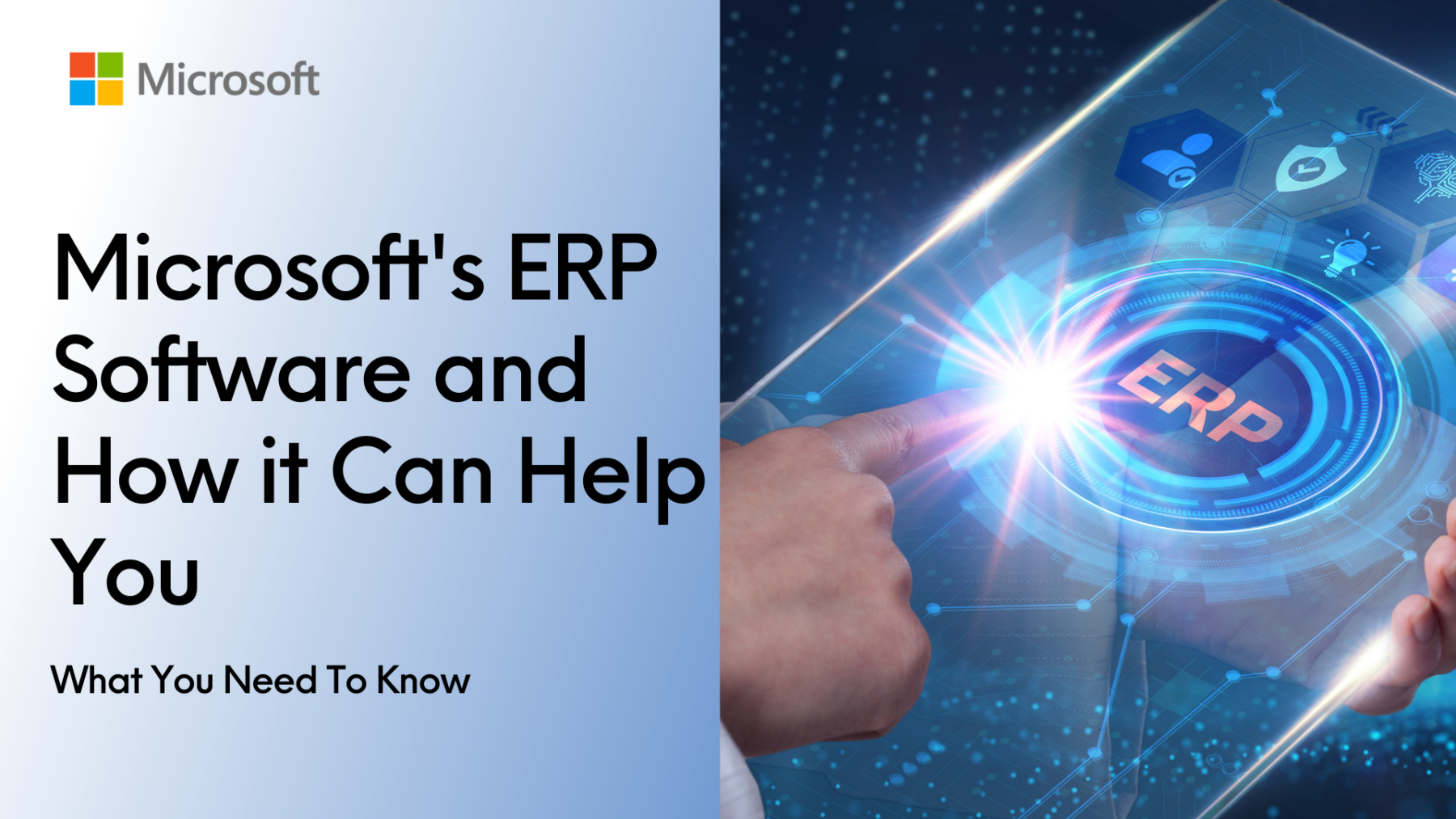Industry Insight: Food Manufacturing
On August 22, 2019, VOX ISM, Microsoft Triple Gold Partner, held it’s first-ever Food Manufacturing and Traceability seminar. The seminar was organized for Food Manufacturers, Distributors and industries alike at the Microsoft HQ in Mississauga. The seminar was a powerhouse of the latest and hottest technologies for the Food Industry designed and powered by Microsoft.
In the seminar, Jim Heaton – President and CEO of VOX ISM, talked about the current challenges the Food Manufacturers and Distributors face today. From strict Food Safety Regulations, ever-changing consumer demands, competitive races, and distribution difficulties and unveiled VOX for Food ERP – a unified, cloud business management suite, encompassing ERP/Financials, CRM and Office 365 for more than 275,000 customers.
Mike Fontaine, Microsoft Solutions Architect, showed how Food Manufacturers could their lower inventory cost and increase efficiency while complying with food safety regulations by providing greater traceability and accountability using VOX for Food for ERP. He also discussed in-detail how VOX for Food ERP could help with:
· Quality Management
· End-to-end Traceability
· Food Safety & Compliance
o Supporting SQF / BRC / FSMA / GFSI / HACCP Initiatives
o Quality checks from pre-receipt-to-entry-to-exit
· Inventory Control
· Batch Recipe
· Shop Floor Data Collection and Machine Integration
VOX for Food ERP is an unmatchable ERP solution for food companies powered by the cloud, powered by data and powered by intelligence.
Did you miss the event? No worries, we have another event coming up!
Microsoft's ERP Software and How it Can Help You
When running a business there are several small steps you can take to improve one’s efficiency. This can be achieved by several different software solutions. Small to medium sized companies in nearly every industry can benefit from Microsoft’s Enterprise Resource Planning (ERP) software. These solutions consolidate and streamline processes and operations from all functional areas and departments of the organization. Microsoft’s ERP software also creates a single source of data for the company to work with—a single repository of data that drives all the company’s processes.
Organizations bring in business benefits regardless of how one uses their ERP system. But there are some specific benefits that your organization can expect from implementing a cloud-based ERP system. Today I will go over the three advantages that cloud ERP software have over the existing on premise counterparts, as well as the three general benefits an ERP system can provide.
A Low Upfront Investment for Great Potential Return
Microsoft’s ERP systems can be tremendously expensive, depending on size of the organization, the scale and complexity of activities that the system will be running. But cloud-based ERP flips the cost model on its head. While companies can still end up spending a great deal of money over five or ten years with cloud-based ERP, the upfront costs are much lower than those for on an on site version of ERP.
Smaller companies can move ahead with a cloud based version of ERP, and many will find it’s priced at a much more affordable monthly expense if their license and transaction numbers are relatively low and if the system does not require various customizations.
Cloud-based ERP solutions are accessible to your employees via any browser, supporting in-house employees as well as remote workforces and a traveling team. Most cloud-based ERP systems have well-developed mobile apps, meaning that staff can not only see reports or any status but also perform many aspects of their work using their phone or tablet. This ease of accessibility means that salespeople, technicians, other field service staff, medical professionals, and other on-the-go workers will no longer have to get back to the office or a desktop computer to perform most elements of their digital work.
Easier Scalability
Companies with a smaller information technology (IT) staff, a small or no physical headquarters, or lower capital can benefit by selecting cloud-based ERP software over locally installed systems, as vendors handle most system maintenance and upkeep requirements for cloud-deployed software. System servers are stored on the vendor’s offsite server locations, enabling organizations to add users to their ERP systems as their business expands without having to purchase expensive server upgrades. This is a large expense that companies can avoid having to pay and this way can reinvest those savings back into their business.
Cloud ERP solutions also reduce how much physical space is required to host systems and decrease the IT labor costs needed to keep the systems up and running.
In addition to the 3 specific advantages of cloud ERPs over on premise systems, there are at least three general benefits of ERP systems overall:
Increased Efficiency
ERP software solutions (cloud-based or otherwise) help unify procedures throughout the business, automating a wide range of capabilities under a single umbrella. This reduces manual data entry requirements, which tend to slow down work processes and leave room for errors and incongruences. For instance, automated data relays keep sales numbers updated throughout the system, enabling accountants to maintain balanced books and warehouses to keep tabs on inventory.
Workflow automation frees employees from repetitive data entry work and from having to notify other departments to pick up a task. This cuts down on delays between the steps of any given process, saves users time, and allows them to focus on higher-value tasks and projects, increasing productivity and potential revenue as a result.
Better Collaboration
ERP systems facilitate collaboration and enable easy access for users in different contexts. Almost all ERP software solutions come with collaboration and communication interfaces that operate much like typical social-media platforms, allowing staff to leave comments and interact over a document or other asset in real time. And, by linking most work processes to a central cloud database, documents and records can be updated by many users and/or updated automatically during different processes without any version control concerns.
Decreased Operational Costs
Any ERP system, cloud-based or on premise, can help cut operational costs if properly implemented and adopted throughout the company. It does this by streamlining and optimizing processes across different functional areas of the organization, including payroll inventory management, client management, and business intelligence initiatives. Users can set up practical workflow automation and reporting capabilities that help them identify and eliminate even subtly inefficient processes. And for most organizations, cloud ERP solutions replace loosely connected software that can be time-consuming to manage and nearly impossible to upgrade as demands increase and the business scales.
Grow Your Business
Cloud ERP systems have various capabilities to help you grow and expand your business. Overall, they enable you to streamline and modernize your processes without requiring a major upfront investment. Cloud-based ERP systems have leveled the playing field, allowing even smaller organizations to reap the benefits of ERP.
As with any software purchase, the best way to ensure a healthy return on investment (ROI) is to look at your company’s needs and what features and capabilities specific software solutions can offer you. TEC has a wide selection of resources and services that can help you in your search. You can browse detailed software overviews, compare products from different vendors, or talk with our industry experts to begin evaluating ERP systems that may be suitable for your business.
Food Manufacturing: Traceability and Industry 4.0 | Event Recap
On August 22, 2019, VOX ISM, Microsoft Triple Gold Partner, held it’s first-ever Food Manufacturing and Traceability seminar. The seminar was organized for Food Manufacturers, Distributors and industries alike at the Microsoft HQ in Mississauga. The seminar was a powerhouse of the latest and hottest technologies for the Food Industry designed and powered by Microsoft.

In the seminar, Jim Heaton – President and CEO of VOX ISM, talked about the current challenges the Food Manufacturers and Distributors face today. From strict Food Safety Regulations, ever-changing consumer demands, competitive races, and distribution difficulties and unveiled VOX for Food ERP – a unified, cloud business management suite, encompassing ERP/Financials, CRM and Office 365 for more than 275,000 customers.
Mike Fontaine, Microsoft Solutions Architect, showed how Food Manufacturers could their lower inventory cost and increase efficiency while complying with food safety regulations by providing greater traceability and accountability using VOX for Food for ERP. He also discussed in-detail how VOX for Food ERP could help with:
· Quality Management
· End-to-end Traceability
· Food Safety & Compliance
o Supporting SQF / BRC / FSMA / GFSI / HACCP Initiatives
o Quality checks from pre-receipt-to-entry-to-exit
· Inventory Control
· Batch Recipe
· Shop Floor Data Collection and Machine Integration
Also in the seminar, David Cameron, Financial Consultant, seasoned and experienced CFO working with large manufacturing business and distribution companies in the likes of Walmart Canada talked about how VOX for Food ERP can assist with making informed decision with connected data across accounting, sales, purchasing, inventory, customer transactions, improve forecast accuracy, and accelerate financial close and reporting.
VOX for Food ERP is an unmatchable ERP solution for food companies powered by the cloud, powered by data and powered by intelligence.
Did you miss the event? No worries, we have another event coming up!
Join us on September 19 when we will demonstrate some of the features of Microsoft Power BI – Microsoft’s AI for Business!



